THOMAS OF LANCASTER, REBEL COUSIN OF KING EDWARD II, FROM WARLORD TO SAINT/CHAPTER FIVE
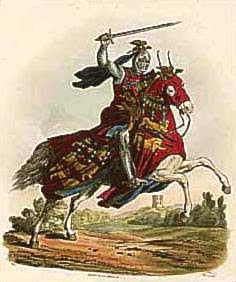
http://www.newworldencyclopedia.org/entry/Thomas_Plantagenet,_2nd_Earl_of_LancasterTHOMAS 2ND EARL OF LANCASTER
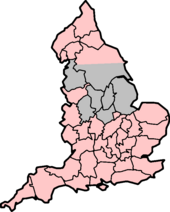
Thomas of Lancaster’s main possessions (Maddicott).THOMAS OF LANCASTER’S MAIN POSSESSIONShttps://en.wikipedia.org/wiki/Thomas,_2nd_Earl_of_Lancaster
http://www.newworldencyclopedia.org/entry/Thomas_Plantagenet,_2nd_Earl_of_LancasterTHOMAS 2ND EARL OF LANCASTER
Thomas of Lancaster’s main possessions (Maddicott).THOMAS OF LANCASTER’S MAIN POSSESSIONShttps://en.wikipedia.org/wiki/Thomas,_2nd_Earl_of_Lancaster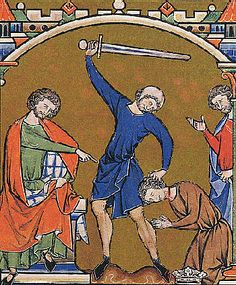
MURDER OF PIERS GAVESTON,INTIMATE FRIEND ANS[POSSIBLE] LOVER OF KING EDWARD II, UNDER THE DIRECT RESPONSIBILITYOF THE EARLS OF LANCASTER, WARWICK, HEREFORD AND ARUNDELMURDER OF PIERS GAVESTON,INTIMATE FRIEND ANS[POSSIBLE] LOVER OF KING EDWARD II, UNDER THE DIRECT RESPONSIBILITYOF THE EARLS OF LANCASTER, WARWICK, HEREFORD AND ARUNDELhttps://themortimersblog.wordpress.com/2017/03/22/a-royal-traitor-the-life-execution-of-thomas-of-lancaster-a-guest-post-by-stephen-spinks/

PONTEFRACT CASTLE, THOMAS OF LANCASTER’S FAVOURITECASTLE [INHERITED FROM HIS FATHER IN LAW, HENRY DE LACY, 3TH EARL OFLINCOLN, AT HIS DEATH IN 1311]IN HIS FAVOURITE CASTLE HIS SOCALLED ”TRIAL” TOOKPLACE AND NEAR HIS FAVOURITE CASTLE, IRONICALLY, HE WAS EXECUTEDhttps://en.wikipedia.org/wiki/Pontefract_Castle#Historyhttps://en.wikipedia.org/wiki/Pontefract_Castle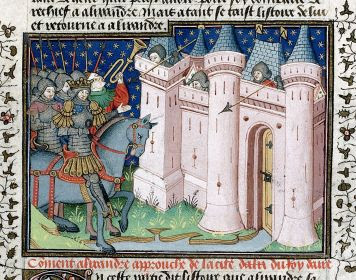
Edward was twice jeered by Lancaster’s garrison at Pontefract in 1317 & 1320 as he passed from north to south
EDWARD II WAS TWICE JEERED BY THOMAS OF LANCASTERAND HIS HOUSEHOLD, IN AT PONTEFRACT IN 1317 AND 1320, WHEN HEPASSED FROM NORTH TO SOUTH…..https://themortimersblog.wordpress.com/2017/03/22/a-royal-traitor-the-life-execution-of-thomas-of-lancaster-a-guest-post-by-stephen-spinks/
THE EXECUTION OF THOMAS, 2ND EARL OF LANCASTERhttp://www.luminarium.org/encyclopedia/thomasoflancaster.htm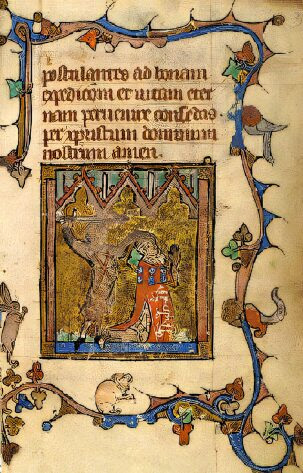
THE EXECUTION OF THOMAS, 2ND EARL OF LANCASTERhttp://www.englishmonarchs.co.uk/plantagenet_74.html
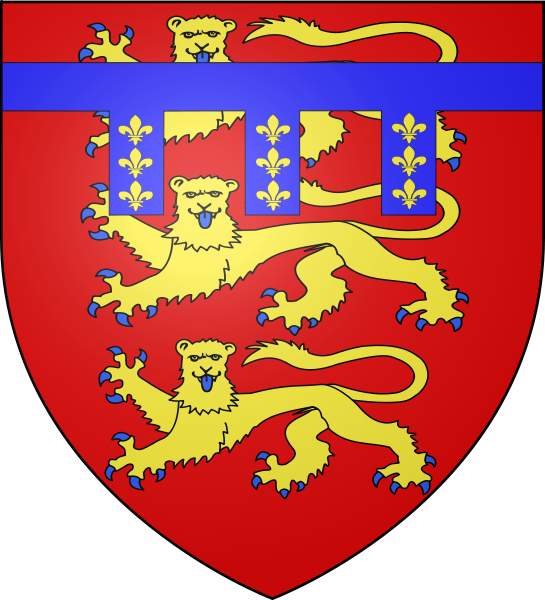
PLANTAGENETCOAT OF ARMS OF EDMUND CROUCHBACK [SON OFKING HENRY III, BROTHER OF KING EDWARD I ANDFATHER OF THOMAS, 2ND EARL OF LANCASTER], THOMAS,EARL OF LANCASTER AND HIS SUCCESSORShttp://www.newworldencyclopedia.org/entry/Thomas_Plantagenet,_2nd_Earl_of_Lancaster
Readers!
In the chapters one, two, three and four we saw, how the initial loyalcousin of king Edward II, fell out with him in a feud/conflict, for political andpersonal reasons and we watched the tragic fate of king’s dear favourite,Piers Gaveston and Thomas of Lancaster’s deadly role in it.
For reasons you’ll read in Chapter Five, Thomas of Lancaster, England”s wealthiest and most powerful man after king Edward II, became the uncrowned king of England
Read furthrer:
CHAPTER FIVE:
CHAPTER FIVE
DANCE FOR POWER
THOMAS OF LANCASTER, THE UNCROWNED KING
1314-1315
A Battle of Bannockburn [1314]
B The Great Famine [1315-1317]
C Lincoln Parliament [1316]/Thomas triumphant
D Three destructive favourites [1315-1318]
E Thomas of Lancaster/Feud with Warenne
F Thomas a peach?/Dangerous incidents
G Pembroke, man of honour/Treaty of Leake [1318]
H Aftermath/The favourites
I After the Treaty of Leake/New danger….
With his good friend and ally the [10th] Earl of Warwick gone, Thomas of Lancaster
not only suffered a personal loss [they were close, since
Warwick had named his son after Thomas [192], but
also it was a political setback.
Warwick was a skilled and clever ruler, while Lancaster,
although tough and forceful in action, was as incompetent as his
cousin Edward II, when it came to ruling, as the story will show…..
From the moment Piers Gaveston was murdered by Thomas and
his accomplices, it was a dance to the death between him
and Edward II, the two most powerful men in the land, yet apart’
from the struggle for power.
For although Edward officially had pardoned Thomas [and others]
for the murder of Gaveston [193],
it was quite clear, that he would never forgive or forget his cousin’s role
in the murder of a man, whom he lhad oved that much.
During the [unsuccesful] siege of Berwick [in which Thomas of Lancaster
cooperated, for a change, with Edward II], in 1318, Edward was stated to have said::
””When this wretched business is over, we will turn our hands to other matters. For I have not forgotten the wrong that was done to my brother Piers.” [194]
So there was a situation in which two powerful men
competed for the rule of England, both incompetent
rulers, who could not put their own personal feelings above
the general political problems, like the war with the
Scots and internal questions [I’ll refer to the
great Famine between 1315-1317 later]
Disastrous for the country and eventually for
themselves.
THE FUN WAS JUST ABOUT TO BEGIN:
A
BATTLE OF BANNOCKBURN/1314
After a tense and dangerous year [since the murder
of Gaveston in 1312], where civil war threatened in a
moment and eventually there seemed some
de escalation, tensions flew high, again.
Presumably with the aim of strenghtening his position
[a victory on the Scots would enlarge both Kings popularity
as his royal position against the barons], Edward II decided to take a military campaign
against the Scots, who were leaded by the formidable military
commander and King, Robert the Bruce. [195]
And yes, Thomas of Lancaster reacted!
As to be expected, in June 1314, Thomas refused to accompany his cousin to Scotland for the Bannockburn campaign, and sent only four knights and four men-at-arms to fulfil his feudal obligations. [196]
The outcome was disastrous.
England suffered one of the most humiliating defeats
against the Scots, in the battle of Bannockburn [197]
in which the King’s nephew [remember, Gaveston’s
brother in law, who had refused to help him], the
[8th] Earl of Gloucester, was killed in battle, [198]
as Robert de Clifford, 1st Baron de Clifford,
one of the besiegers of Piers Gaveston at
Scarbourough Castle. [199]
To the great credit of the King must be said,
that although a bad military commander, he
fought very bravely and eventually they practically
had to drag
him from the battlefield to prevent the greatest
humiliation: to be captured, as would happen, years
later [in 1356], to the French King John II during
the Hundred Years War with England…. [200]
And figure:
A perhaps yearlong regency for his 2 year old
son [Edward, later Edward III, born in 1312…],
under the leadership of….guess who?
Likely, his cousin Thomas, Earl of Lancaster [King’s
halfbrothers were still too young].
SO:
THIS WAS THE GOLDEN CHANCE FOR THOMAS!
The battle of Bannockburn not only was
a great personal humiliation for Edward II, it
put him entirely at Thomas’ mercy. [201]
Had Edward been victorious, he would
have gained a great prestige and popularity, as
secure borders in the North.
That would have strengthened his position
towards Thomas of Lancaster and the other
opposing barons enormously.
But the painful reality was a humiliating defeat
[and for the Scots a great step in their freedom
fight!]
So Edward needed his cousin Thomas:
Without his help, the borders couldn’t be
defended against the Scottish raids, that now
ravaged English soil. [202]
A nasty position for a King, dependency on
a subject, who was his most powerful
nobleman and enemy.
1315/
THOMAS OF LANCASTER
DE FACTO RULER
In name Edward was the King, but the de facto
ruler was Thomas.
Alas, he proved to be as incompetent ruler
as his cousin Edward and although tough in military
action, he nevertheless was incapable to defend England against the Scottish attacks.
Perhaps it is not fair to reproach him that:
Robert the Bruce was an extraordinary skilled
military leader and the Scots were very motivated
to fight for their freedom [in the meantime ravaging
North England….]
But it IS reproachable, that neither the King nor
Thomas were capable to rise above personal
matters to work together in the State interests.
It was said, that
””Whatever pleases the lord king, the earl’s servants try to upset; and whatever pleases the earl, the king’s servants call treachery…and their lords, by whom the land ought to be defended, are not allowed to rest in harmony.” [203]
B
THE GREAT FAMINE/1315/1317
This disaster lasted from 1315 till 1317:
The first duty of a Medieval Lord [and certainly a King] was to look
to the welfare of the people.
To take care of them.
To feed the poor.
To defend the weak. [204]
When Thomas of Lancaster had sold some of his
precious belongings to feed the poor during that famine,
he should have been a saint already during his life….
That’s a pure joke, of course
Not ONE Lord in that time
would mind about the need of the poor [the chivalric
codes were merely theoretical] or would put it in his
head to sell precious things for the poor.
Besides that, the famine problem was not that simple,
because it was not only merely a question of not
HAVING food, but not capable to PRODUCE it.
The Great Famine started with bad weather in spring 1315. Crop failures lasted through 1316 until the summer harvest in 1317.
It rained heavily and constantly for much of the summer of 1314 and most of 1315 and 1316.
This torrential rain, inevitably, caused flooding; crops rotted away and livestock drowned in the waterlogged fields. So the result was the Great Famine, which is estimated to have killed at least five per cent, and perhaps much more, of the population of England. The rest of northern Europe suffered a similar or higher death toll. [205]
Edward II did his best to handle the crisis, but was not capable
to solve the problem. [206]
Perhaps Thomas of Lancaster took some measures
too, I don’t know.
Of course the famine was a hugh problem, yet it is the task
of rulers to handle wisely and competently.
Both failed, King and cousin, to handle the problems
and of course they didn’t cooperate together, which is
more than just bad ruling.
When famine is concerning, it is a crime against the poor population, which suffered the most.
However, to say to their defence, the situation WAS alarming
and partly they were powerless:
Even the King when visiting St Albans from 10 to 12 August 1315, had difficulties buying bread for himself and his household…….[207]
It is a wonder, that there had been no uprisings or peasants
revolt in that time….
The weather finally improved in 1317, and gradually the famine loosened its dread grip. [208]
Two big disasters and yet the most powerful men in the land couldn’t rise above personal matters and work together…..
A foreboding for all the mess, which was yet to come.
EDWARD II AND THOMAS OF LANCASTER/
TWO IRRESPONSIBLE FOOL RULERS
Just when there were such challenges and a need for strong
leadership, Edward II and his cousin Thomas could
do no better than thwarting each other, to the destruction
of many, including themselves.
For example [to begin with Thomas]:
Although Thomas was chosen as one of the godfathers of Edward and Isabella of France’s second son John of Eltham [209], Thomas’s great-nephew, he failed to attend the boy’s christening, a gross insult to the king and queen. [210]
But honesty obliges me to say, that before the christening solemnity of the second son of the King, Thomas and the King seemed
to have had a serious row in York…..[211]
But yet, try to keep the peace, my Lord Lancaster…..
The King acted no better:
”In April 1318 the Scots took the English town of Berwick which led to a shaky reconciliation between Lancaster and his cousin Edward.
The king, however, had not forgotten, or forgiven the death of Gaveston and was so ”wise” to have said:
”When this wretched business is over, we will turn our hands to other matters. For I have not forgotten the wrong that was done to my brother Piers”.[212]
Well, the temporary ”peace” was over and Lancaster [Thomas] left. [213]
Not strange, since the remark of the King was aimed
directly against Lancaster, for his role in the murder of Gaveston.
But since the King had pardoned those involved in the
murder of Gaveston in 1313, [214]
he was obliged to his royal status to hold his word, whatever
his personal feelings and how painful for him as a person.
That’s the honour of a King AND wise ruling.
This remark but showed, that Lancaster was right, not
to trust the King…..
Nor could the King trust Lancaster.
And as will be revealed in the story, there were people
around the king, trusted ”friends”, who played a dirty role
to prevent any reconciliation between the King and
cousin Thomas.[215]
C
1316
LINCOLN PARLIAMENT/THOMAS TRIUMPHANT
The Lincoln parliament of early 1316 – at which Thomas of Lancaster attended, more than two weeks late – requested of the king’s “dear cousin” that “he might be pleased to be chief of his council, in all the great or weighty matters concerning him [Edward] and his realm,” and Thomas, “for the great love which he bears towards his said lord the king,” agreed. [216]
To cut this shortly
Thomas was appointed to the ”chief place” in the Council
[Chief Councillor]. [217]
Unfortunately, he seemed to take little part in government and
preferred to stay at his favourite residence at Pontefract Castle
[which he had inherited jure uxoris from his father in law,
Henry de Lacy, the 3rd Earl of Lincoln] [218]
That formed a problem, since Edward II and the Council
had to communicate with him ”as though he were an independent
potentate, or another King” [219]
[Hahaha, there was no Internet then/Otherwise they could
have mailed or Facebooked…….”’Dear Cousin”, ”Sire,
my cousin……]
SURPRISE, SURPRISE/ROW WITH COUSIN KING EDWARD II
Edward and Thomas met in York in the summer of 1316 and had a furious row, apparently over Edward’s ongoing reluctance to accept the Ordinances [220], to which Thomas was devoted. [221]
Now I can imagine, that Thomas was irritated:
After all Edward II had agreed with the ordinances in 1311, and
although he was more or less coerced to[222], when a King gives
his word, his subjects have a right to expect, that he holds it.
I refer to the last passage from the coronation oath of the
King [pronounced in French]
”Sire, graunte vous à tenir & garder les loys & les custumes droitureles, les quiels la communaute de vostre roiaume aura esleu, & les defendrez & afforcerez, al honour de DIEU, à vostre poer?”
And his answer and promise
”Jeo les graunte & promette.”
[English translation:
Sire, do you grant to be held and observed the just laws and customs that the community of your realm shall determine, and will you, so far as in you lies, defend and strengthen them to the honour of God?
Answer and promise of the King
” I grant and promise them.”] [223]
That means of course, that if the King grants the Ordinances,
he has to hold word.
And as a subject, Thomas of Lancaster had the right
to hold the King accountable to his oath. [224]
On the other hand I can understand the King’s position
too.
He was more or less coerced to those Ordinances, which
assaulted his royal position.
Yet a King is bound to his ”promises”…..
But of course that was not the point here.
After the brutal murder on Gaveston, any conflict
between Edward II and Thomas of Lancaster was in fact
about the King’s need for revenge on his cousin.
Maybe understandable being a private person, but a
King must put the interests of the State first.
And that Edward II was not willing or able
to do.
That was the King’s tragedy, which would led to his downfall.
D
THREE DESTRUCTIVE FAVOURITES
ROGER DAMORY, HUGH AUDLEY AND WILLIAM
MONTECUTE, THREE DESTRUCTIVE FAVOURITES
1315/1318
To make matters worse, the next years [untill the
”reconciliation” treaty of Leake], three friends and
favourites of Edward II, declared enemies of Thomas
of Lancaster, would do their utmost to further arouse
Edward’s hostility towards his cousin Thomas.
Their names were Roger Damory, Hugh Audley and
William Montecute [father of that William Montecute,
close friend of Edward III, who helped him overthrow
the regime of his mother Isabella of France and her lover
Roger Mortimer] [225]
And I am not exaggerating, when saying, that their influence
was destructive, doing everything to enlarge the tensions
in the country.
Roger Damory/Favourite and first disturber of the peace
After having mourned Piers Gaveston for about three years, Edward II had a close companion again [I don’t speculate, whether
their relationship was sexually intimate or not, let the reader
form his or her own opinion] in Roger Damory,
the most important of the three favourites [ancestor of Walt Disney, hahahaha] [226]
That man was one of a kind:
First favourite of the King [about 1315-1319], later ally of the same Thomas of Lancaster he tried to destroy during the time
he was favourite……[227]
Joining the retinue of King’s nephew, the [8th] Earl of Gloucester
[also brother in law of Piers Gaveston, whom Gloucester didn’t help, when he [Gaveston] was in the dungeons of Warwick Castle]
, Damory fought bravely
in the Battle of Bannockburn [1314] and thus attracted the King’s attention.
And so he made a quick career. [228], which especially
seemed to have been characterized by seeking his own advantage
and hinder all reconciliation attempts between Edward II and his] cousin Thomas of Lancaster. [229]
Rightly Pope John XXII wrote to King Edward ” to “remove those friends whose youth and imprudence injure the affairs of the realm.” [230]
By the way, Edward II married Roger Damory to his
niece, Elizabeth de Clare, sister of the [8th] Earl
of Gloucester. [231]
Hugh Audley/Favourite and second disturber of the peace
[only favourite to survive the reign of Edward II and also
rebel against the King and ally of Thomas of Lancaster
and the Marcher Lords]
Hugh Audley rose in royal favour in 1315 and the relationship
came that close, that Edward II married him to his niece
Margaret de Clare, sister of the [8th] Earl of Gloucester
and dowager countess of Cornwall, widow of Edward II’s
beloved Piers Gaveston [232].
That was a beautiful catch!
Remember, Edward married Roger Damory to his other
niece Elizabeth, sister of Margaret de Clare.
William Montecute/Favourite and third disturber of the peace
William Montecute, father of his namesake William, who
was one of the closesr friends of Edward III [233], rose
into royal favour after 1315 and was a good soldier.
He was appointed steward of the royal household in 1317,
which gave him direct access to the King, so a powerful
position. [234]
He had a reputation as a good soldier. [235]
Alas, he also was a great hindrance in bringing reconciliation
between Edward II and his cousin, Thomas of Lancaster……
THE DESTRUCTIVE TRIUMVIRATE
DANGEROUS THREAT TO THE PEACE
IN THE COUNTRY
Roger Damory, Hugh Audley and William Montecute
had a highly destructive and fatal influence on the
King, intruiging against Thomas of Lancaster at any means
necessary.
The reason I condemn them so harshly is because this
dangerous policy led to further destabilisation of
the situation in the land, which was already torn
apart by the continuing threat of civil war, because of
the enmity between Edward and his cousin Thomas.
And as I see it, the destructive policy came mainly
from those three favourites, not from Thomas of
Lancaster [Thomas is no peach at all, but here he was
certainly not the attacker], who had reason to
feel himself threatened by those three.
For example [list is not complete]
At a meeting of the king’s council at Clarendon in the spring of 1317, the three openly called Thomas a traitor. [236]
That is a very serious accusation, dangerous too.
So understandably, Thomas protested.
He sent letters to the King, to say that “he fears the deadly stratagems of certain persons who thrive under the protection of the royal court…they have already carried off the earl’s wife to his disgrace and shame.” [on the history of his wife I refer later] [237]
That he subsequently [and repeatedly] asked the banishment from
Court of Damory, Audley and Montecute, comes as no suprise
either, since those gentlemen continued to sow discord
and counselled the king to remain hostile to his cousin. [238]
Out of self interest of course, and highly damaging for the
peace in the country.
Edward II, no great champion in knowledge of human nature,
was misled by those three and wrote Thomas, as reaction of
his letters with the request of banishment
””I will avenge the despite done to the earl when I can; I refuse to expel my household; for the abduction of his wife let him seek a remedy in law only.” [239]
By this, the King made things worse.
And Thomas was not alone, but was supported by Pope
John XXII, who wrote the King repeatedly in 1317 and 1318,
warning the King not to allow any “backbiter or malicious flatterer” to bring about disunity between himself and Thomas, and to send away from court those men who offended the earl. [240]
He advised the King to “remove those friends whose youth and imprudence injure the affairs of the realm. [241]
He also warned Thomas to “separate himself” from those who displeased Edward and to reject “suggestions of whisperers and double-tongued men.”[242]
The Pope was a real peacemaker!
In addition to the King and his cousin Thomas, he also
wrote to Thomas’ brother, Henry, [later] Earl of Lancaster several times in 1318 as a close kinsman of both the king and Thomas and “bound to pay them reverence and affection,” asking him to promote accord between them “so that the realm may be freed from disturbance” [243]
I don’t know whether Henry tried to mediate, since
it is likely, that he spent the most of that period
in France [perhaps because he wouldn’t be involved
in his brothers’ feud with the King? } [244]
But the machinations of the three favourites were
not done yet:
After several summons of the King to Thomas of
Lancaster to attend council meetings, which he not
attended [not suprisingly, since the three favourites attended,
sometimes armed…][245], the King asked his household and
friends for advice in this situation:
””You see how the earl of Lancaster has not come to parliament. You see how he scorns to obey our commands. How does it seem to you?” [246]
Some advised to arrest or exile Thomas, others, more sensible,
advised to negociate.
After all, although politically isolated now, Thomas of
Lancaster WAS a force of nature, since very powerful by the
possession of his five Earldoms and not to be underestimated,
his private army.
Be as it may, a very dangerous situation threatened:
To cut a long story short:
At the instigation of two cardinalswho had recently arrived in the country – they were with the king at York in September 1318 – a date was finally set for a meeting between Edward and Thomas, although it was postponed.
Edward agreed to take no hostile action against Thomas and his adherents, and Thomas agreed to attend the next parliament, due to be held at Lincoln in January 1318. [247]
At the beginning of October 1317, The King left York to return to London.
Alas, despite his promise a few days earlier not to take action against his cousin, he commanded his men to take up arms and attack him. [248]
Apparently one of Edward’s friends – most likely Roger Damory – had persuaded him that the earl posed a threat to Edward and that he should attack him first.
Fortunately the King informed the earl of Pembroke beforehand what he was intending to do.
He said “I have been told that the earl of Lancaster is lying in ambush, and is diligently preparing to catch us all by surprise.” [249]
Pembroke fortunately managed to convince Edward that this was not in fact the case, and talked the King out of it…..[250]
This unsound situation would continue from 1315 to 1318,
when the man of honour [see the Piers Gaveston story], Lord
Pembroke and the Middle Party intervened and managed to
reach the Treaty of Leake. [251]
But that’s for later
E
FEUD WITH WARENNE
Never a dull moment in the Edward II/Thomas of
Lancaster times.
Not only Edward and his cousin had become
bitter enemies, which included enmity between
Lancaster and the named destructive favourites,
Thomas also had a bitter feud with John de Warenne,
7th Earl of Surrey [one of the besiegers of Piers Gaveston
in Scarbourough Castle].
What the original nature of the hatred of Warenne for Lancaster
was, is not sure:
Probably he blamed Lancaster for his [Warenne’s] inability to secure a divorce [he was unhappily married]. This may be because Lancaster had persuaded the Bishop of Chichester to prosecute Warenne for his adultery [252]
In each case, Warenne retaliated with the abduction
of Lancaster’s wife, Alice de Lacy, with whom he [Lancaster]
was unhappily married. [253]
Whether the abduction took place with or without
the consent of Lady Alice, is not clear.
Lancaster, not a man to forgive an insult, retaliated again
with seizing two castles from Warenne. [254]
At last the King intervened, which led to an uneasy
peace between the two noblemen. [255]
WHAT A FUN!
However, Lancaster also thought, that the three favourites
were behind the abduction [256], which made matters
worse and worse…….
F
THOMAS OF LANCASTER A PEACH?/
FORGET IT/DANGEROUS INCIDENTS
[Jeering at the King/1318/1320/Blocking his way….]
The attentive reader shall have noticed, that I defended
Thomas of Lancaster several times:
Against the unpredictable behaviour of the King
[stating not to attack Lancaster and yet planning
an attack, not holding his word and failing to obey the Ordinances
of 1311] [257]
Against his destructive favourites, who did everything
in their power to prevent a reconciliation between the
King and his cousin Thomas.
But was Thomas then, a peach, only intended to hold
the King to his word?
NOT AT ALL!
The reader has read about his [and others’] execution
of poor and vain Piers Gaveston.
That’s not ”peach” behaviour, but lawless and ruthless.
The King, on his part, was not ”true to his word”, stating
at one moment not to attack Thomas, and the second
moment attempting to attack him [Thanks to
the Earl of Pembroke, nothing came from that]
Stating to observe the ordinances and then not
to hold his promise.
But to the defence of the King must be said, that Thomas
did, also, his best to stir up the animosity”, which the
King [understandably] harboured because of the tragic
murder on Gaveston:
I already mentioned the absence of Thomas at the
battle of Bannockburn, as his failing to attend the
christening of the Kings second son, John of
Eltham, although he was one of the godfathers. [258]
But it became worse:
BLOCKING THE PATH OF THE KING
During the time of high tension [when the three favourites
accused Thomas of treason, his wife Alice had been abducted]
Edward and Isabella left Nottingham and the failed council meeting on 7 August 1317 [where Thomas didn’t attend, not willing
to meet the King, as long as the three destructive favourites were
not expelled from Court]] , and travelled to York. The most direct route would have taken Edward right through the town, but Thomas had blocked his way by placing armed guards on the roads and bridges south of York,
claiming he had the right to be informed about the
movement of armed men as he was the hereditary Steward
of England…..[259]
Of course the King was furious that a subject had blocked his way!
MORE FUN/
JEERING AT THE KING
Next to blocking the King’s path in his own Kingdom,
one of the worst things subjects can do is, make
a joke of their King, by jeering at him.
And that was precisely what Thomas of Lancaster
did:
1317
”Thomas made matters worse by leading his men out to the top of the castle ditch and jeering at Edward as he and his retinue travelled past. [260]
AND HE DID IT AGAIN!
1320
After the parliament in York ended [which Thomas failed to
attend], Edward II and his wife Isabella of France travelled through Pontefract on their way to London, and Thomas’s retainers once again jeered at the king, and also the queen, from the safety of the castle. [261]
NOT VERY CLEVER, MY LORD THOMAS
Not very clever……
G
PEMBROKE, MAN OF HONOUR/THE MIDDLE
PARTY AND THE TREATY OF LEAKE
Finally a reconciliation
between the two most powerful men, Edward II and his cousin Thomas,
was about to take place.
With special compliments for the Earl of Pembroke, the man of honour, who
had been offended by Gaveston’s abduction since he had given
his word [262].
The same man, who had talked Edward II out of his foolish
and dangerous intention to attack Thomas of Lancaster at his
stronghold at Pontefract [263]
With Pembroke playing an important role,
since April 1318, a group of barons and prelates [the
”Middle Party] [264] had been negotiating with the earl of Lancaster, and trying to persuade Edward and his cousin to overcome their hostility to each other. On 8 June, they came to a preliminary agreement: Edward would uphold the Ordinances, govern by the counsel of his magnates, and conciliate Thomas, who was threatened with sanctions if he continued to hold armed assemblies [which he indeed had held,
but also the King had permitted armed Lords to his councils]. [265]
On 7 August 1318 the two men exchanged the kiss of peace in a field between Loughborough and Leicester. Edward gave his cousin a fine palfrey “in recognition of his great love” of Thomas. (Hmmmm.) A formal agreement, the Treaty of Leake, was signed in the town of Leake near Loughborough two days later [266]
Thomas of Lancaster demanded [and right he was!] that
Roger Damory, Hugh Audley and William Montacute be sent away from court, the King consented and off they went…..[267]
GOOD RIDDANCE WORKS!
I
THE FAVOURITES/AFTERMATH
Finally the destructive influence of the King’s
three favourites had come to an end!
How fared they?
Roger Damory
From Kings friend to enemy
His influence was over, athough he seemed to have been in the
favour of the king for a while.
At last, he clashed with the new and most destructive favourite
of the King, Hugh Despenser the Younger [268], joined the Marcher
Lords [sworn enemies of the Despensers, father and son and
allies of Thomas of Lancaster] [269]
He fought with the Marcher Lords against the Kings army, was
captured and tried [condemned to the traitor’s death, which was
not executed, happily for him] and died at Tutbury Priory on 12 March 1322, presumably of wounds sustained fighting against the royal army…… [270]
William Montecute
As his co favourites Roger Damory and Hugh Audleu he had
done everything to instigate further animosity between Edward II
and his cousin Thomas of Lancaster.
Therefore he was removed from his post as steward of the royal household and appointed steward of Gascony in november
1318.
He died in Gascony in 1319. [271]
Hugh Audley
Hugh Audley also turned from the friend of the King
to his enemy…..
Hugh fought with the Marcher Lords against the King
[and the Despensers] and later fought at the side of
Thomas of Lancaster [the Marcher Lords were his ally]
in the fatal Battle of Bouroughbridge [272].
He was spared execution thanks to his wife Margaret de
Clare’s pleas [she was the niece of Edward II and widow
of his former lover Piers Gaveston], somehow
survived the reign of Edward II and the regime
of his wife Isabella of France and lover Roger Mortimer [see his life/273]
and died peacefully in november 1347. [274]
He was the only one of Edward II’s favourite to
survive those turbulent times.
J
AFTER THE TREATY OF LEAKE/NEW DANGER
By late 1318, the relationship between Edward II and the earl of Lancaster was relatively good and Pembroke and
the other barons [as the other subjects of the King]
doubtless sighed with relief, because civil war
seemed to be at the end.
And for those, who doubt Thomas:
He actually co-operated with the king and took part in the siege of Berwick in 1319. [275]
But as we shall see:
Nothing lasts forever and the destructive favourites
would soon be replaced by a far more dangerous man:
Hugh Despenser the Younger [276], who would lead the King
to his destruction and his own [Hugh’s]
More about the Despensers and Thomas of Lancaster’s
role in the next chapter.
ASTRID ESSED
NOTES 1-250
NOTES 251-347
